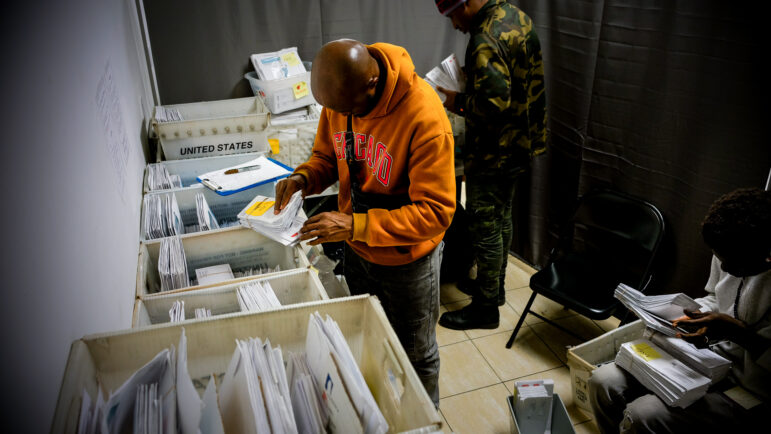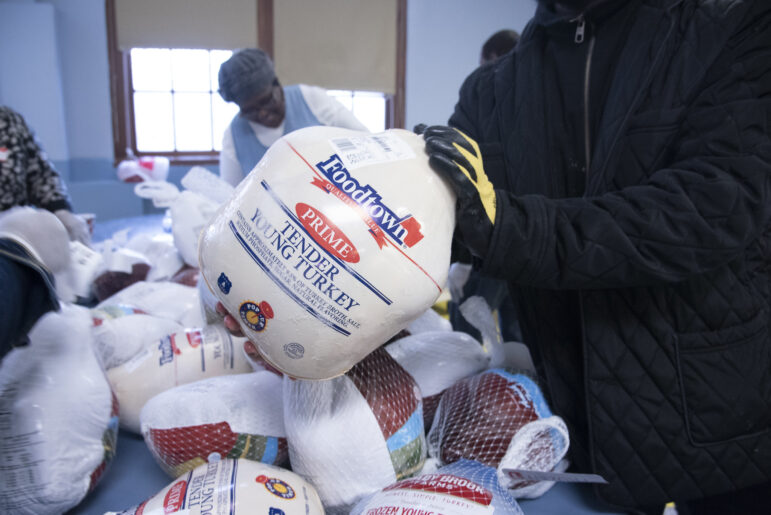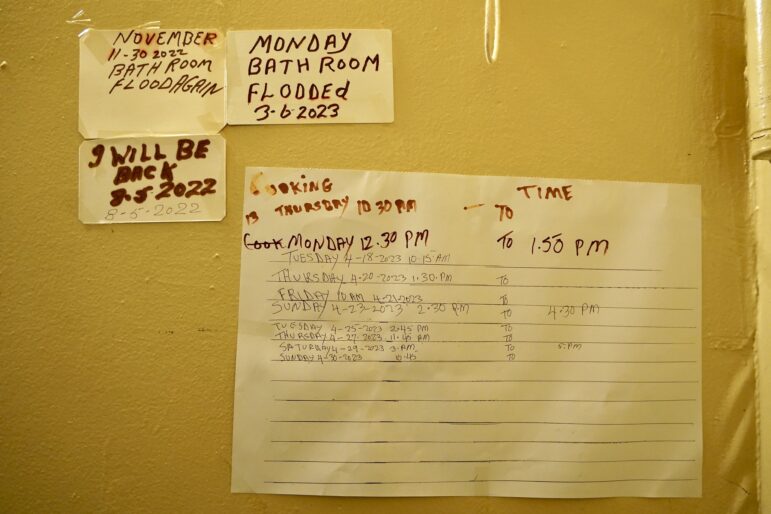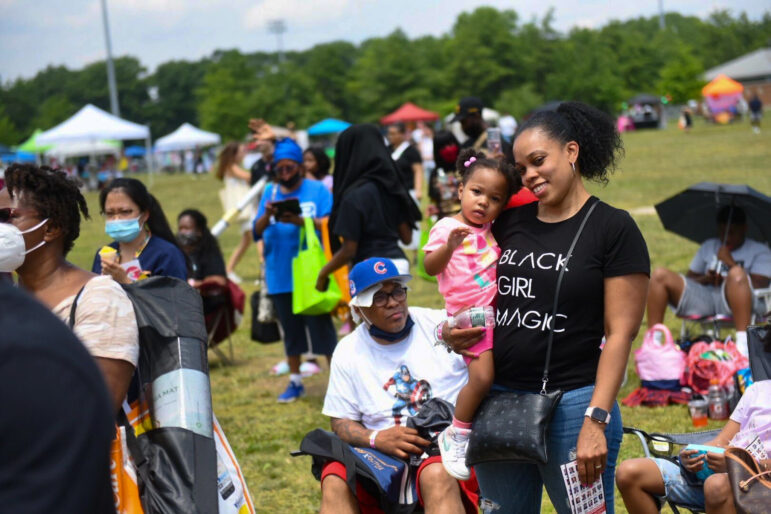“Vocational salience allows all human beings to find purpose, social involvement, aspiration, life achievement, monetary reward, and the opportunity to offer themselves to the world as a change agent.”
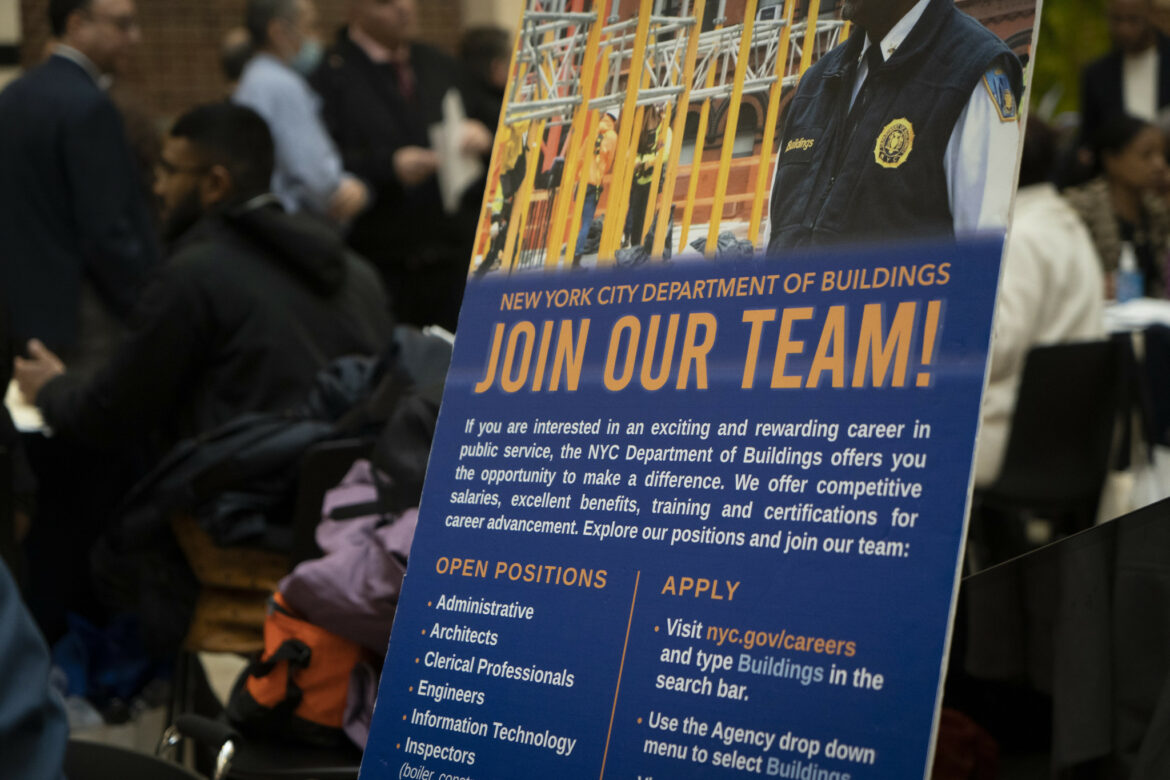
NYC Mayor’s Office/Caroline Willis
A jobs fair for city agencies in March.Most people spend a third of their lives working in a career, job, or some type of meaningful activity. Meaningful work comprises various options such as full-time, part-time, or volunteer work activity. Vocational salience allows all human beings to find purpose, social involvement, aspiration, life achievement, monetary reward, and the opportunity to offer themselves to the world as a change agent.
People with disabilities want to experience this level of achievement based on their level of functional ability and independence. October is recognized as a time to acknowledge the employment needs of people with disabilities and is known as National Disability Employment Awareness Month.
The Comptroller’s Office reports that between 2020 and 2022, the number of working-age people with disabilities in New York rose to 14.4 percent. While the number of working-age people with disabilities has grown, so has unemployment rates among this group. In 2022, the national rate for unemployed, working-aged people with a disability dropped to 8.2 percent, but New York continues to lag behind with 11.9 percent of working-age residents with disabilities remaining unemployed.
The Americans with Disabilities Act of 1990 and its Amendments Act in 2008 mandate people with disabilities who are qualified for employment opportunities should not be discriminated against when participating in those employment opportunities based on their disability. Despite this, there are a plethora of causes of unemployment amongst disabled New Yorkers, such as inadequate access to accommodations, stigmatization of disability within the workplace, and lack of adequate training and placement services.
In the past, there was also a financial disincentive for New Yorkers with disabilities to become employed since they would lose access to benefits. In 2022, we joined advocates and colleagues in the fight to increase the cap on income to 600 percent of federal poverty, which we won in the budget. Now, New Yorkers with disabilities can retain access to benefits while employed.
Additionally, Assemblymember Harvey Epstein’s bill, A05815B, requires the commissioner of general services to submit a report to legislative leaders summarizing data related to state employment of individuals with disabilities by Dec. 1, 2025. This bill passed both the Assembly and Senate and if signed into law, would facilitate transparency—allowing us to determine employment rates among people with disabilities.
It would also show people with disabilities’ level of participation in state contracts and explore policies and practices carried out by state contractors and subcontractors to promote the employment of New Yorkers with disabilities within their workforce. This data is crucial in enabling the state to create more informed policies for disabled New Yorkers, boosting employment opportunities and new career pathways for our residents.
New York has recently taken new steps to increase opportunities for people with disabilities, including expanding the state’s preferred source contracting program and creating the Office of the Chief Disability Officer. However, there is still much work left to be done.
Every year, we host Students with Disabilities Advocacy Day at the State Capitol to advocate for increased investments in funding for people with disabilities to make sure they have a pipeline for good jobs, such as internships, support in college, and mentorship. We will continue to host this annual event until students receive all the resources they need to thrive. We have made significant progress and now it is time for Gov. Kathy Hochul to build off this work and take a significant step forward in advocating and protecting New Yorkers with disabilities by signing A05815B into law.
For folks seeking employment, here are some usable tips courtesy of Center For Independence of the Disabled, New York (CiDNY):
- Know your employment rights when interviewing for a job and once hired, how to maintain a job.
- Know the resources and assistance you will need to maintain your activities of daily living, transportation needs, assistive technology needs, and oral and written communication.
- Know what accommodations you may need in the work setting and ask for it if you need it.
- Know the current salary requirements for your industry so that you can negotiate starting salaries, raises, and bonuses if applicable.
- Continue to update your technology skills so that you remain current in the labor market.
- When transferring to a different job, make sure that these job changes are assisting with upward mobility within your career and not lateral moves that offer no future for advancement and/or salary increases.
- When interviewing for an open position, make sure that you discuss all skills and experience including transferable skills that could be utilized within the current position you are applying for consideration.
- Develop your self-esteem and self-confidence traits that demonstrate your ability and qualifications.
- Develop a work/life balance that includes recreational activities, hobbies, friends, family, etc. which is all needed for brain synergy
- If you need assistance, do not hesitate to contact CiDNY at contact info@cidny.org or (212) 674-2300.
Sharon McLennon Wier, Ph.D., MSEd., CRC, LMHC, is the executive director of Center for Independence of the Disabled, New York (CIDNY). Harvey Epstein represents New York’s Assembly District 74 on Manhattan’s east side.


